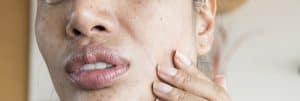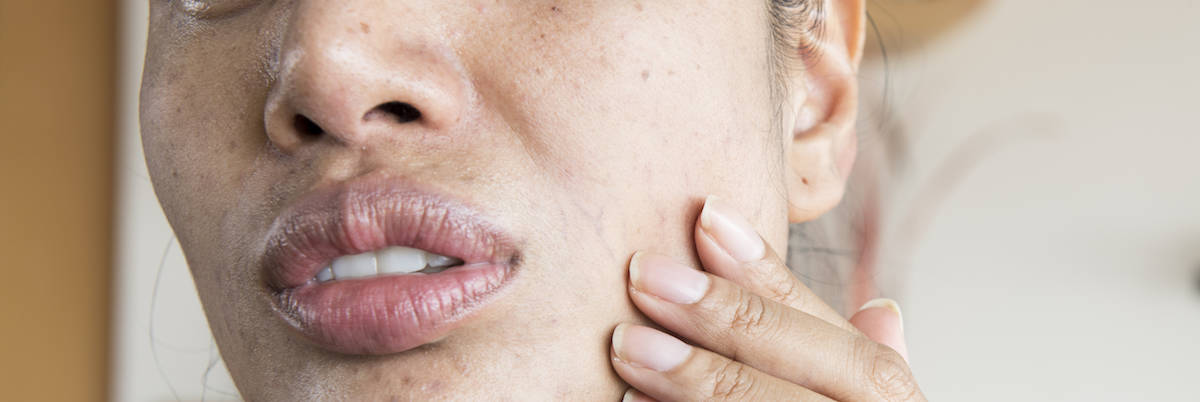
Acne… whether it is a pimple, whitehead, or blackhead, all be very frustrating for those who have it. In order to know how to treat it each form of acne, you need to first know what type you have and what caused it.
Whiteheads are small, round bumps found on the surface of the skin. They are basically just a clogged pore that usually develops into a pimple. The pore is clogged by dead skin cells, debris, and sebum. This clog is just under the surface of the skin and appears to be white; thus, the name “whitehead.”
The major difference between whiteheads and blackheads is whether or not the pore is completely clogged. Blackheads are partially clogged pores. The black appearance is the results of oxygen coming in contact with the partially clogged pore.
An inflamed pore that is red and swollen is a pimple. Whiteheads and blackheads that have become infected, turn into a pimple.
Acne typically starts in the teenage years but doesn’t always stop once a person is done with puberty. Rather, adult acne can continue through the rest of one’s life. Below are some tips on how to prevent and treat any acne you have – no matter your age!
- Be careful what you put on your skin: Anything you apply to your skin, can and will affect your skin’s health. Consider what type of makeup you choose. If you are putting anything on your face that can clog your pores, you are at risk for acne. When shopping for makeup, lotion, or sunscreen, look for non-comedogenic listed on the label – this means it will not clog your pores.
- Use spot treatments: A salicylic acid spot treatment can help diminish the development of acne. Applying salicylic acid to the area will help keep a whitehead from further developing in a pimple. Products with benzoyl peroxide will also help to dry excess oil which can trap debris in pores. These can be prescribed by a dermatologist or can be found over-the-counter at your local drugstore.
- Wash your face at night: Make sure you always remove your makeup at bedtime with a gentle cleanser. Sleeping with makeup and the day’s dirt on your face can cause acne to develop or become worse. Avoid excessive washing or scrubbing as this can further irritate the skin. Because acne is not only limited to the face, you should shower after exercise or other strenuous activities to clean pores from dirt, oil and sweat.
- Don’t pick your skin: “Pimple popping” or picking at acne can do more harm than good. Infections, scarring and delayed healing can be the results.
If your acne continues to bother you, consider scheduling an appointment your Dermatologist. Dermatologists can provide you with additional treatment options, including prescription oral and topical medication. Treating and preventing future breakouts does not have to be done alone. Our staff is committed to helping you have clear, radiant skin.
Disclaimer: This blog provides general information and discussion about medical, cosmetic, mohs, and surgical dermatology. The words and other content provided in this blog, and in any linked materials, are not intended and should not be construed as medical advice. If the reader or any other person has a medical concern, he or she should consult with an appropriately-licensed dermatologist or other health care worker.
